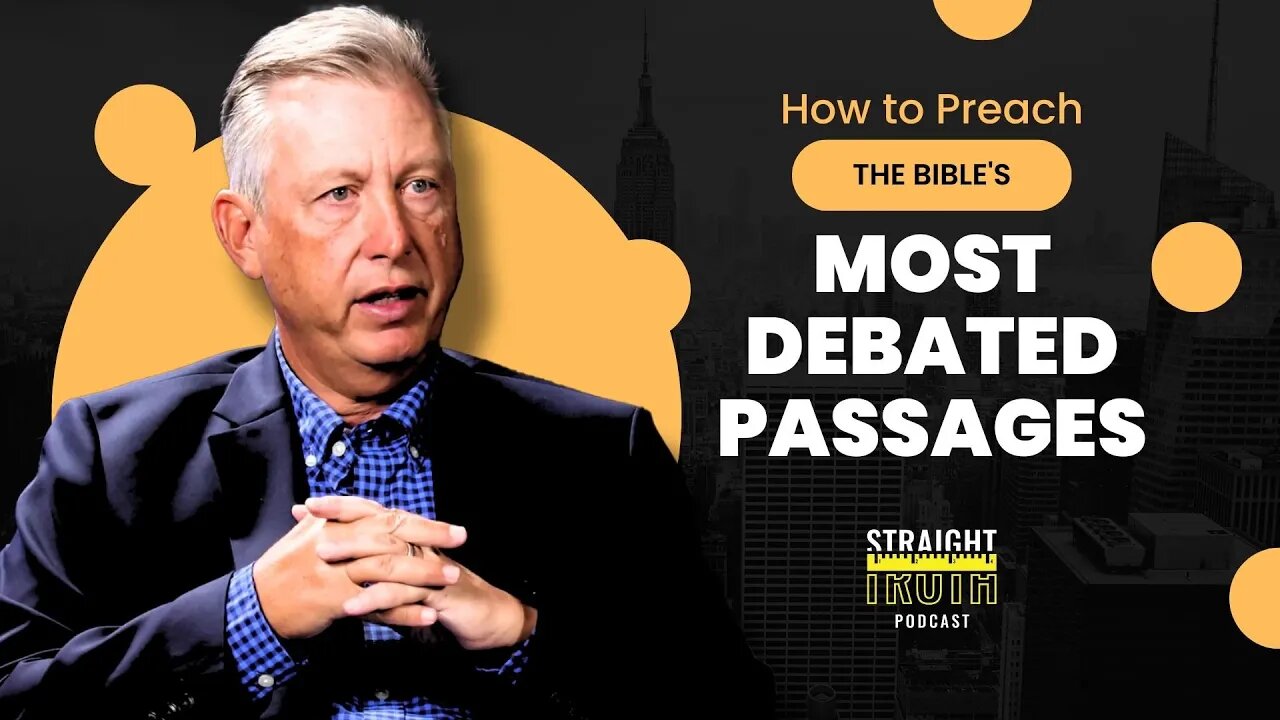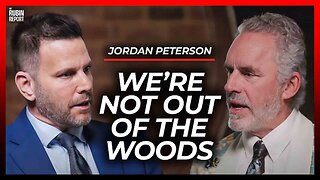Premium Only Content

How to Preach The Bible's Most Debated Passages
The sermon links below are some examples of hard/difficult passages that are sometimes misunderstood and misinterpreted and others that are just hard sayings and hard to accept. These are sermons that Dr. Caldwell has faithfully exposited from the pulpit over the last 20 years.
The Exception: https://youtu.be/gozJvD1c8PU
A Startling View of Divorce & Remarriage: https://youtu.be/kDhU5HK-U0o
Judgment & Judgmentalism - Part 1: https://youtu.be/tEnLpYm5_9g
Decision: https://youtu.be/4jhhc4KchDY
A Warning About Self-Deception: https://youtu.be/tu0FjCPFTlg
The Savior's Sword: https://youtu.be/mldYPk3C0dE
The Freedom of God's Will: https://youtu.be/ytlF0fJhAZE
The Day of Pentecost: https://youtu.be/U5TduTzpSwY
The Gift of Tongues - Part 1: https://youtu.be/2F9HMnI5rQ0
The overarching message of the Bible is about God and His salvation of sinners. While the basics of that message are clear, many other things in the Scriptures are not. There are things written that are hard to grasp, hard to accept, and even things that get distorted (2 Peter 3:16). Many of these things have caused confusion in the church. They’ve brought separation and division, resulting even in different denominations due to doctrinal beliefs, etc. Some have even caused confusion and disharmony among church members in their local body of Christ. This week on the Straight Truth Podcast, Dr. Josh Philpot speaks with Dr. Caldwell about these hard teachings. Dr. Caldwell is preaching through the book of Matthew and recently finished teaching a series titled - Marriage, Divorce, and Remarriage as he arrived at Matthew 19. Dr. Caldwell and the elders of Founders Baptist Church take a different position on the passages related to divorce and remarriage than the majority of pastors and leaders in the evangelical world. Dr. Philpot asks Dr. Caldwell to speak with us about the preaching and congregational dynamic of preaching through the difficult passages and hard sayings of Scripture. He asks Dr. Caldwell to share what he understands the responsibilities of those in the church are when they hear these confusing, challenging, and sometimes hard-to-accept passages preached.
Dr. Caldwell stresses the importance of the elders and the responsibilities they have in the church first. The importance of their character and what’s true of them matters greatly. The church needs to be convinced the only motive they have in teaching the Word of God is to be true to the Word of God and that they are not trying to sell their own opinions or their own view of things. They want to demonstrate over their ministry time that their hearts and minds are submitted to the authority of God’s Holy Word. When this is done over the long course of ministry, the congregation gains confidence that they’ve been careful with what they’ve studied and shared from the pulpit and teaching positions in the body. This enables the congregation to respond better, properly even, seeing that the elders have been careful in ways that reveal reverence for God, respect for His Word, and a trembling at His thoughts as they practice what they preach and teach. Something else elders can do that will be helpful for the congregation is to model being charitable to others when dealing with things that are not first-tier issues. Modeling honesty, fairness, generosity, and charitableness, and not misrepresenting our opponents (those who disagree with you) teaches a congregation a kind of reasonableness concerning these sorts of issues. Another way the elders at Founders Baptist Church have found it helpful to deal with some of their distinctives and differences relating to these things is through church orientation/church membership classes. By doing this, members aren’t completely shocked when the preaching and teaching on these hard-to-understand, difficult, challenging, and sometimes hard-to-accept passages are taught to them. He sees all these things as somewhat foundational to what you should see in the life of the congregation.
What should then be seen in the life of the congregation, and what are the responsibilities of congregants? Dr. Caldwell explains that we should see submission to the leadership and teaching of the elders, submission to truth taught from the pulpit. So even if someone is sitting in the congregation that doesn’t agree, and it’s not over a matter of orthodoxy, their attitude is still one of love and joyful submission. They aren’t free to undermine the pulpit in the life of the church. For example, while he believes that the vast majority of Founders members agree with his position on divorce and remarriage, he knows some don’t, and that is fine. But what those who don't agree can’t do is sow division and discord in the church. Their attitude should not be combative and should not seek to battle with other members over it. Nor should someone just throw it off by saying I just don’t believe that.
-
 44:51
44:51
Straight Truth Podcast
1 month agoStraight Truth 5 Most Popular Episodes: Anxiety, Prayer, Dating, Word of Faith and More
121 -
 6:49
6:49
Russell Brand
19 hours ago"HE'S A RUSSIAN PLANT!" CNN Loses It ON AIR!
78K96 -
 13:10
13:10
The Rubin Report
21 hours agoWhy the Real Challenge Is Just Beginning | Jordan Peterson
27.7K5 -
 1:02:55
1:02:55
Tactical Advisor
1 hour agoBuilding a Truck Gun -Battle Hawk Build of the Month | Vault Room Live Stream 017
13.2K -
 42:41
42:41
Athlete & Artist Show
59 minutes agoSeason 5 Episode 3 LIVE
23 -
 UPCOMING
UPCOMING
I_Came_With_Fire_Podcast
8 hours agoThe US GOVERNMENT is PLANNING a UAP FALSE FLAG ATTACK
9151 -
 18:10
18:10
Sideserf Cake Studio
2 hours agoIs This the ULTIMATE Cake Smashing Moment?
246 -
 12:51
12:51
Misha Petrov
16 hours agoTrump KICKS OUT Zelenskyy After HEATED White House Meeting!
2.1K43 -
 16:39
16:39
Tactical Considerations
1 day ago $0.09 earnedWatchtower Apache Double Stack 1911 Made Me Question Everything?
203 -
 16:20
16:20
T-SPLY
3 hours agoCNN Meltdown Over Zelesnky Disrespecting Donald Trump And JD Vance
1562